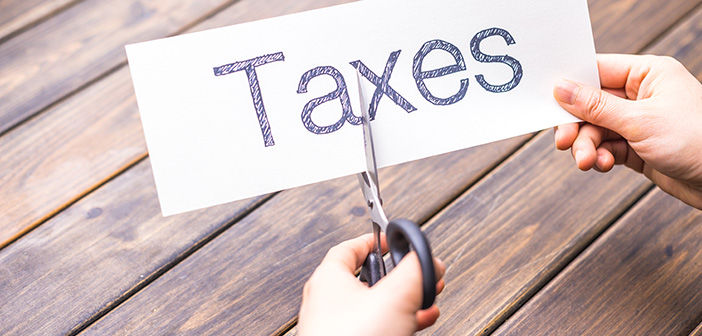How to (Legally!) Avoid Capital Gains Taxes on Real Estate

The only two inevitable things in life are death and taxes, right? Well, sort of. Savvy real estate investors have more loopholes than most to reduce their tax burden.
What Are Capital Gains?
Introduction: Short-Term vs. Long-Term Capital Gains Taxes
When you buy low and sell high for a profit, that profit is called capital gains. What you’re buying and selling doesn’t particularly matter; it could be stocks, real estate, vintage cars, whatever. If you buy it for $100 and sell it for $150, you owe taxes on the $50 profit.
If you own the asset for less than a year, that profit is taxed as ordinary income. Whatever your normal income tax rate is, that’s what you pay on those gains—this is referred to as short-term capital gains.
But different tax rules apply if you own the asset for more than a year. Instead of being taxed at your normal income tax rate, these profits are taxed at the lower tax rate for long-term capital gains.
Related: Cap Rate: A Must-Have Number for Rental and Commercial Investors
Here’s how the long-term capital gains tax brackets look for a single filer, compared to ordinary income taxes:
| Single | Normal Income Tax Rate | Long-Term Capital Gains Tax Rate |
| Up to $9,700 | 10% | 0% |
| $9,701 to $39,475 | 12% | 0% |
| $39,476 to $84,200 | 22% | 15% |
| $84,201 to $160,725 | 24% | 15% |
| $160,726 to $204,100 | 32% | 15% |
| $204,101 to $434,550 | 35% | 15% |
| $434,551 to $510,300 | 35% | 20% |
| $510,301 or more | 37% | 20% |
That’s the first piece of good news: long-term capital gains tax is significantly lower than normal income tax rates. But the news gets even better, because as a real estate investor, you have some tricks up your sleeve to avoid paying even those lower long-term capital gains tax rates.
10 Ways to Reduce or Avoid Capital Gains Taxes
Hate paying taxes? Me, too. After all, it’s awfully hard to reach financial freedom at a young age if you lose 30 to 50 percent of your income to FICA taxes and federal, state, and local income taxes.
Here are 10 ways to cut capital gains taxes, legally, as part of your tax toolkit.
1. Hold Properties for at Least a Year
This one’s obvious, so let’s get it out of the way. As outlined above, if you own a property for less than a year and sell it for a profit, you pay the higher income tax rate.
So? Don’t sell right away.
After renovating a property, keep it as a rental for a year. Your tenants can pay down the mortgage while the property (hopefully) appreciates.
Or, if you don’t want to risk tenants damaging your beautifully-rehabbed home, buy a tattered rental property with an existing tenant, leave them in there for a year, and then rehab and sell it.
2. Move in for Two Years
If you’ve lived in a property for at least two of the last five years, capital gains tax on the sale of that property is exempt up to $250,000 for single filers and $500,000 for married couples.
So, you could do a live-in flip, making repairs on the property over the course of two years, then selling for a profit—a profit that you get to keep tax-free.
Or you can convert the home into a rental for a few years to gain even more appreciation before selling. Alternatively, you could reverse the order and move into your rental property for two years before selling.
As long as you’ve lived in it for two of the last five years, you can dodge the capital gains tax bullet. Read more from the IRS here about Section 121 exclusions.
3. Use a 1031 Exchange
Another option offered by the IRS is a “like-kind exchange” per Section 1031 of the tax code. The short version is you can take the proceeds from selling one property and use them to buy similar property, and defer the capital gains taxes on the sold property. That requires a bit of unpacking to be useful for those of you who aren’t financial nerds.
First, a “like-kind” property usually means a property used similarly. For example, you can sell a rental property and use the profits to buy another rental property. But you can’t use them to buy a Ferrari or shopping mall.
Second, there’s a time limit. Within 45 days of selling the original property, you have to “nominate”—identify to the IRS—the new replacement property you’ll be buying. Then, you have to actually buy it within a total of 180 days from when you sold the old property.
Finally, the word “defer” requires explanation, too. A 1031 exchange doesn’t mean you never have to pay taxes on your gains. When and if you ever sell the new property for a profit, you’ll owe capital gains taxes on it.
That is unless you do another 1031 exchange, in which case you can keep buying ever-larger and higher-yield properties and keep deferring capital gains taxes indefinitely. And you can do this all while living on the rental income.
Related: 8 Top Tips to Take Advantage of New Tax Reform for 2019
4. Invest Through a Self-Directed IRA
Assets owned under an IRA or Roth IRA grow tax-free. You can buy and sell properties within a self-directed IRA and continually reinvest the proceeds. Of course, when you actually retire and go to pull that money out, you’ll owe taxes on the gains then—at least in the case of traditional IRAs. Withdrawals on Roth IRAs, however, are completely tax-free.
The downside is that there’s some work involved in setting up a self-directed IRA, as well as some expenses. That’s on top of the work involved in buying, managing, and selling properties.
5. Keep Records on Capital Improvements
When you make any capital improvements—upgrades that extend the lifespan of the property—they add to your cost basis for the property. For the non-accountants out there, your cost basis is how much you paid for the property (at least as far as Uncle Sam is concerned). You buy a property for $100,000, your cost basis is $100,000, and that’s what’s used to determine your capital gains (unless you deduct for depreciation every year, but that’s a whole different conversation).
Where were we? Oh yeah, capital improvements. So, you bought a property for $100,000, and sell it for $150,000. Normally you’d subtract the $100,000 cost basis from your $150,000 sales price to calculate a $50,000 capital gain. But what if you spent $15,000 on a new roof while you owned the property? That changes your cost basis from $100,000 to $115,000.
Now, instead of owing capital gains taxes on $50,000, you only owe it on $35,000, because the capital improvement to the property increased your cost basis. But only if you keep good records and remember to account for the improvement costs when you file your taxes!
6. Sell Assets When Your Income Falls
Over the last few years, you did pretty well for yourself. Then you got fired and spent six months finding a new job, or starting a new business, or whatever.
If you’re having a rough year income-wise, it’s a good time to sell a property. Because, at a lower income, you may well owe 0% in capital gains tax.
Specifically, if you’re single and your adjusted gross income is under $39,375, or married and your adjusted gross income is under $78,750, you don’t owe a cent in capital gains taxes.
Besides, if you’re that broke this year, you might need the money.
7. Reduce Your Taxable Income
No, I would never suggest you take a pay cut just for tax reasons. But you can do other things to lower your adjusted gross income, such as contributing money to a tax-deferred account.
You should be contributing to your retirement accounts every year regardless, such as your IRA and ideally an employer-sponsored account like a 401(k), 403(b), or SIMPLE IRA. But you may be able to also lower your adjusted gross income by switching or contributing more to a health savings account—a great option for relatively healthy people.
You can also reduce your adjusted gross income through tax deductions, although itemizing is less common today, with the standard deduction at $12,200 for individuals and $24,400 for married couples.
Remember: if your adjusted gross income is under $39,375 for singles or $78,750 for spouses, you don’t owe capital gains taxes!
8. Harvest Losses
Another option for offsetting income from capital gains is harvesting losses. Once again, don’t sell off stocks or other assets at a loss solely for tax reasons. But if you’ve been sitting on a loser stock for a while now, kicking yourself for buying it in the first place and have been meaning to just cut your losses and move on, now might be the perfect time to do just that.
Say you realize a $10,000 loss on that loser stock by selling, and you realize a $50,000 gain after selling a rental property. The loss offsets your gain, so you now owe capital gains taxes on $40,000 instead of the full $50,000. Plus, you can take your proceeds from the loser stock and reinvest them in a more promising investment, whether stocks, real estate, or your own side hustle business.
9. Gift Properties to Family Members
Older property owners start thinking more about their estate planning and how to pass their assets on to their heirs with minimal taxes for both parties. One option is gifting properties directly to your children while you’re still alive. If they keep the property for the rental income, great. If they decide to sell it, well, they may be in a lower tax bracket and may owe no capital gains taxes.
Either way, you don’t pay the capital gains taxes.
But there’s a catch here—when you give a property to your children while you’re still alive, the cost basis passes to them. So, if you bought the property for $100,000, it’s now worth $150,000, and they sell it for a $50,000 profit, they owe capital gains taxes on that $50,000 gain because they inherited your cost basis.
Alternatively, if you pass it to them as part of your estate when you die, their cost basis resets to the market value at the time of your death—so that often makes more sense. If your children would like to live in the property for at least two years, that changes everything, because they can then qualify for the personal residence exemption outlined above.
As a final thought, you can gift cash, stocks, or other assets beyond real property. Every year, you can give a certain amount to your children tax-free. In 2019, it’s $15,000 per person.
10. Donate the Property to Charity
Feeling generous? If you’re reading this article, you are probably in the top 1 percent of income earners in the world. Don’t believe me? To be in the top 1 percent worldwide requires an annual income of $32,400, according to Global Rich List.
You’re doing a lot better than most people in this world. I don’t say it to make you feel guilty; wealth is a wonderful thing, and you should build more of it. But at a certain point, it’s worth pausing to give something back to people who need it most.
And let’s be honest: you can redistribute your own wealth far more efficiently than the government can with your tax money. Instead of selling and paying capital gains taxes on your earnings, consider giving the property to a charitable organization. Not only do you avoid capital gains taxes, but you may be able to take a deduction from your ordinary income, as well.
Final Thoughts
Long-term capital gains taxes may be lower than regular income tax rates—but I still don’t want to pay them when I can avoid it.
As a financial independence and retire-early educator, particularly about FIRE from real estate, I encourage people to focus first and foremost on slashing their top four expenses: housing, transportation, food… and taxes. The more you earn, the greater percentage of your income disappears to taxes. Fortunately, you’re in a better position than most as a real estate investor to minimize your tax burden.
So, here’s to building wealth—and eventually to giving it away to someone other than Uncle Sam
What’s your tax strategy? How do you minimize your own tax burden?






